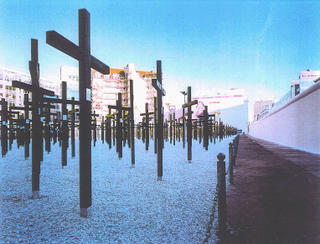Mamluks (also Mameluks, Mamelukes) (the Arabic word usually translates as "owned", singular: مملوك plural: مماليك) comprised slave soldiers used by the Muslim caliphs and the Ottoman Empire, and who on more than one occasion seized power for themselves.
The first Mamluks worked for Abbasid caliphs in 9th century Baghdad. The Abbasids recruited them from enslaved non-Muslim families captured in areas including modern Turkey, Eastern Europe, and the Caucasus. Using non-Muslims as soldiers helped partially overcome Islamic prohibitions on Muslims fighting each other. The rulers also desired troops with no link to the established power structure. The local warriors were often more loyal to their tribal sheiks, their families or nobles other than the sultan or caliph. If some commander conspired against the ruler, it was often not possible to deal with him without causing unrest among the nobility. The slave-troops were strangers of the lowest possible status who could not conspire against the ruler and who could easily be punished if they caused trouble.
and from the latest news watching in the WSJ:
There are many ways to interpret the surprise victory of Mahmoud Ahamadinejad, who becomes the sixth president of the Islamic Republic. But one thing is certain: It marks a shift of power within the Khomeinist regime from the mullahs to the military. This is the first time that a mullah, in this case the most prominent of all political mullahs, has been defeated by a virtually unknown nonmullah in a high-profile election.
The defeat of the mullahs is illustrated by other facts as well. All the self-styled grand ayatollahs of Qom endorsed Mr. Rafsanjani, as did both rival wings of the Society of Combatant Clergy. This vast coalition, ranging from Mossadeqists to Tudeh Communists and so-called "religious nationalists" that had helped Khomeini to power in 1979, also campaigned for Mr. Rafsanjani.
Mr. Ahamadinejad exploited the antimullah feeling without any qualms. He spoke of "16 years of decline, despotism and theft." And no one needed reminding that in those 16 years Ayatollah Ali Khamenei had been the "Supreme Guide" while two mullahs, Mr. Rafsanjani and Mohammad Khatami, had held the presidency for eight years each.
Mr. Ahamadinejad's victory marks the ascendancy of the Islamic Revolutionary Guard Corps and the half-dozen paramilitary organizations related to it. A regime whose elite has been discredited as a result of years of misrule is forced to bring its military to the fore to meet the political challenges ahead.
What is happening in Iran today has numerous precedents in Islamic history. Many regimes based on religion ended up making a Faustian pact with their military for protection against the people. And in every case the military, once in power, eliminated its masters. Islamic history knows such military rulers as the "mamelukes" -- literally, "the owned ones," individuals who were supposed to serve the caliph but ended up chopping off his head and seizing power for themselves.
There is no doubt that Mr. Ahamadinejad, and beyond him the military elite of the regime, owe their victory to Ayatollah Khamenei, who broke with his fellow mullahs to help the military win the struggle within the regime. Theoretically, Ayatollah Khamenei now controls all the levers of power in the establishment. In reality, however, he is a lone mullah who will be increasingly opposed by the clergy for different reasons. At the same time, because he lacks a popular base of his own, he will in time become a hostage to the new "mamelukes" symbolized by Mr. Ahamadinejad.
The victory of the new mamelukes has not come out of the blue. They have been capturing positions of power at the expense of the mullahs for many years. Right now, 22 of the 30 governors of provinces are new mamelukes. In the Islamic Consultative Majlis, or parliament, the new mamelukes outnumber the mullahs 130 to 63, out of a total of 290 seats. The new mamelukes are also strongly represented in the Islamic Republic's diplomatic service, controlling more than half of Iran's embassies in key capitals such as Kabul, Baghdad and Beijing.
